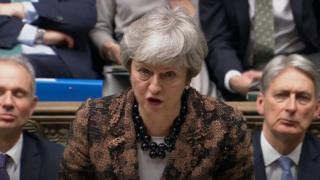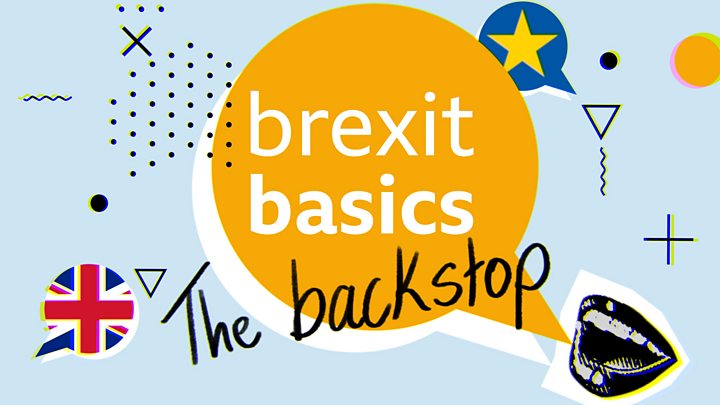Brexit: MPs put forward rival plans to May's deal
 Image copyright
PA
Image copyright
PA
MPs have begun putting forward proposals to change the outcome of Brexit ahead of next week's scheduled vote on Theresa May's amended deal.
Mrs May will meet her cabinet after telling MPs on Monday that she was focused on altering the Irish backstop.
But Labour leader Jeremy Corbyn said the prime minister was in denial about the level of opposition to her deal.
Among the MPs' amendments are plans to prevent a no-deal Brexit and to extend the deadline for leaving the EU.
'Brexit deadlock'
An official Labour Party amendment says that MPs should be able to vote on options such as the party's preferred outcome of a closer relationship with Europe, with a permanent customs union.
It also asks MPs to decide whether they should hold a further referendum on whatever Brexit plan is approved by the House of Commons.
Mr Corbyn said the amendment allowed MPs "to end this Brexit deadlock" and prevent the "chaos" of leaving the EU without a deal.
But Mrs May warned that another EU referendum could threaten the UK's "social cohesion".
Among the other plans being put forward by MPs are:
- An amendment by Labour MP Rachel Reeves aimed at preventing a no-deal Brexit by requiring the prime minister to seek an extension to the Article 50 deadline
- A bill from Labour MP Yvette Cooper, with the backing of Remainer Tory MPs, which also directs the prime minister to seek a deadline extension if a Brexit deal is not agreed by 26 February
- An amendment by Labour MP Hilary Benn which asks MPs to take a non-binding vote on four options: reconsidering Mrs May's deal, leaving the EU with no deal, seeking to renegotiate the deal or holding another referendum
Some ministers are reportedly backing the proposals to block a no-deal Brexit, with the i newspaper and the Times saying that dozens could quit unless they are allowed a free vote on the issue.
The papers said that Work and Pensions Secretary Amber Rudd has warned Mrs May that up 40 ministers could resign.
'A proper say'
Last week MPs rejected the deal negotiated between the UK and EU on the terms of the UK's departure from the bloc by 432 votes to 202 - a majority of 230.
Outlining her proposed way forward on Monday, Mrs May refused to rule out a no-deal Brexit and insisted there was no majority in the House of Commons for another referendum.
But she promised Parliament a "proper say" in the next stage of negotiations on the future relationship between the UK and EU.
She also said she would conduct further talks on the Irish backstop plan, which is designed to prevent the need for a visible border and customs checks between Northern Ireland and the Irish Republic.

It means Northern Ireland staying aligned to some rules of the EU single market and effectively keeps the UK in the customs union until the UK and EU reach a lasting trade agreement.
The backstop is opposed by many Conservative MPs and the Democratic Unionist Party because they fear it could become permanent and because it means different rules for different parts of the UK.
MPs are due to vote on a modified version of Mrs May's deal on 29 January.
